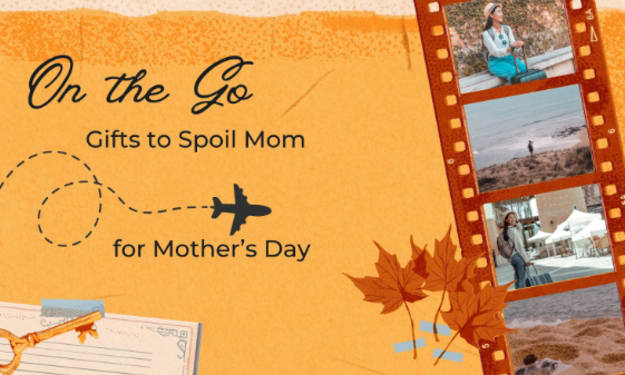
I feel very privileged to have roots in the place where I am from. I am eager to claim my heritage, even though I know some people in the “first world” might be confused as to why.
I’ve alluded to this a few times in my blog posts, but my father is from a very rural area of Southern Ethiopia, the state of Kaffa and the village Warwara. There is no drivable road to Warwara; the most direct path is through the forest on foot or by horse. It takes about four hours from the town Wushwush.
Warwara is also one of the most beautiful places on Earth.
I feel privileged because so few people come to visit, or know the path to travel here. There is no tourism to clutter what my father calls the “billion dollar view”. It is physically difficult to reach, but for me, especially traveling with my cousins and relatives, it’s a joyful journey. I arrive into an embrace by all the people I haven’t seen in months or years.
As I’ve grown older this feeling has become more profound. Warwara is one of very few places where generations of indigenous people have lived and still live, where we shape our environment ourselves. I treasure Warwara’s beloved people, not only my family but our neighbors and friends, our generational relationships and community. I feel a responsibility to preserve our unique culture, learning all the language and customs that I can.
Many people in Warwara live in what Westerners would call huts and children often run around barefoot. They fail to understand that neither of these are necessarily bad things. People other than me have written about this more eloquently — how this community-built housing, with cool and clean packed earthen floors, neatly furnished, can be quite desirable, particularly for city relatives escaping for holidays, relieved to be away from the polluted rush. The donation model of TOMS was always funny to me because access to shoes was never the chief concern for anyone in Warwara.
I certainly don’t mean nothing can or should be improved — access to drinkable water and quality healthcare and educational institutions are key priorities for infrastructure (I completed a clean drinking water project of my own in the nearby town Muti). It’s just that I, and many rural indigenous peoples, are tired of the caricatures of our problems or the assumptions about the kind of development that is actually needed.
My father took me to Warwara very young, which I’ll always be grateful for. It made me feel like I grew up there too, in snippets, kicking off my own shoes and running to fetch water from the river with my cousins. As I grew into my young adult years, it took me a while to realize that people I always heard referred to in abstract, some population called “them” somewhere, in everything from racist remarks to charity ads to UN sustainable development goals, were in fact my own people — people living in rural sub-saharan Africa, with incomes close to the global poverty line.
During my most recent trip, I had the funny realization that some of the complaints in Warwara are the same as the complaints in Boston. Some of the “first world” and “third world” problems were actually identical. Adults lament that the kids these days are always on TikTok, or spend too much time on their phones (or on a friend’s or relative’s phone). Teens are scolded for having devices out during dinner. Aunties complain that the kids are less respectful than generations past, and lazier. Somewhere an ‘old man yells at sky’, like every generation before and everywhere around the world.
But more importantly, we’re also referred to in abstract by internationalization teams or major tech companies, who fail to think of us as complex, knowledgeable, even tech-savvy individuals, rightfully suspicious of large corporations and sensitive to how they’re treated as users. My cousin T remarked to me that he stopped using WhatsApp because it was a Facebook property, and was concerned about messages remaining encrypted. The use of free tools, which often make money from the sale of user data, was not without knowledge of the risks — it was simply about what was accessible or affordable, like a third-party cloud drive app he showed me while joking about its probable lack of data safety.
Rather than being easily duped or misinformed, people are constrained by a lack of resources and remain aware of these constraints and trade-offs. As my other cousin G scrolls through TikTok or Instagram and shows me funny or interesting clips, he’ll occasionally remark that something might not be real, even if it’s still fun to look at. While I didn’t solicit any takes on misinformation, particularly as it relates to the ongoing conflict in Ethiopia, I felt that my relatives were just as conscious of these problems as the average iPhone-toting American, if not more so. In this remote village, people wore masks if they had cold symptoms with better adherence than most American cities.
Just as similarly, awareness and interest in such issues scaled with education, particularly university education. But for any level of education, the climate in Ethiopia at the moment, from the city to the villages, was solidly anti-American, particularly American interference. I was asked several times if I voted for Biden, to which I replied that in our country we always chose between two evils.
I’m always surprised by how few people seem to recognize Ethiopia as a globally important nation, and a nation and culture important to the pan-African struggle for human rights and justice. Even other Africans are surprised when I tell them that, with a population of over 110 million, it’s the 2nd most populous nation on the continent after Nigeria, and the 12th most populous globally. Ethiopia has a 6,000 year history that stretches into times so ancient they are shrouded in myth, matched perhaps only by China. The Amharic or Ge’ez alphabet —also used for writing other languages in Ethiopia, the way the Latin alphabet is used for multiple languages — is the only African phonetic alphabet. Even the Ethiopian Orthodox Church is notable, preserving the largest biblical cannon of texts written by different ancient authors (secularly important as historic/cultural references), and is one of the oldest Judeo-Christian institutions. Ethiopia stands out starkly compared to the rest of the continent for abortion access, because the Tewahedo Church does not share the same views as Western religious institutions on life beginning at conception. In fact, at the moment, abortion access in parts of Ethiopia may be better than most US states.
The truth, which we’ve always known really, is that there is no such thing as a first world or a third world.
We are actually just in one extremely interconnected world, and we should be viscerally aware of that now more than ever. Yet, I feel like people keep resisting it, being willfully blind, even myself to an extent. Maybe it’s a uniquely American condition, or a uniquely urban one, a kind of ambient encouragement toward individualism. But every loss — of language, of culture, and especially of life — is one we should all feel. Of course there’s too much going on and the news is too noisy for everything to be equally important to everyone. But aside from the concrete criticisms that I’d begun thinking about — the need for products made for the global South to be actually well thought through, the need for better relationships between companies and their international contractors — there was something else too, more abstract, even spiritual. It was this feeling that people, myself included, just hardened their hearts to everything, or just dissociated themselves or others, because all the chaos of the past few years had been so overwhelming.
I felt privileged to be able to go to that unique place, the place of my heritage, and soften again.
This trip was after six long years away between COVID and the conflict, and I felt jolted back into myself, like I’d just woken from a long dream. In Boston I had started to develop a strange, unfocused tunnel vision that made me swing between anxious and depressive episodes during these difficult years. I never felt I was where I should be, or I felt like I would never get there, or I wasn’t sure where ‘there’ even was. In the most recent few years, I’d also been waging war on my emotions for some reason, wishing I could be more ‘rational’ or less affected by events that happened to me. In hindsight, I can’t even recall why I had started to think that way or how I had lost track.
Just before I arrived in Warwara, a close relative passed away. All of a sudden, I felt shame that I could not easily cry. I realized instantly the purpose of sadness, the purpose of tears. No one in the cold, northeastern American city I lived in would understand, but in our village in the clouds, we share our pain that way. We express it, and let it go, in a way I’d felt unable to for so long. I felt human again, part of this place, and the place I’d left behind, and every place.
About the Creator
Olivia
A Tech Blogger
https://pubgnewstate.mobi/
https://smartgaga.me/






Comments
There are no comments for this story
Be the first to respond and start the conversation.